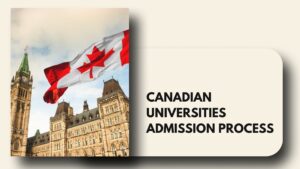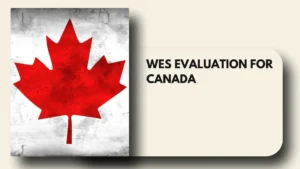- Irish visa rejection rates increased by 15% in 2025, with financial inadequacy causing 35% of all rejections.
- Two main visa types available: ‘D’ Study Visa for degree programs over 90 days and ‘C’ Visit Visa for short-term courses.
- Visa application fees range from €60 (₹6,124) for single entry to €100 (₹10,208) for multiple entry visas, non-refundable even if rejected.

Masters in Netherlands: Discover the Unknown Path
The Irish immigration system has evolved significantly in recent years to accommodate the growing number of international students. Each Irish visa category serves specific purposes and comes with distinct requirements that can make or break your application.
Most international students require either a ‘D’ Study Visa for degree programs lasting more than 90 days, or a Type ‘C’ Visa for short-term stay. To be eligible for a student visa, you must have been accepted onto a full-time course listed on the Interim List of Eligible Programmes (ILEP).
Major Ireland Student Visa Categories for International Students
The Irish immigration system has evolved significantly in recent years to accommodate the growing number of international students. Each Irish visa category serves specific purposes and comes with distinct requirements that can make or break your application.
Most international students require either a ‘D’ Study Visa for degree programs lasting more than 90 days, or a Type ‘C’ Visa for short-term stay. To be eligible for a student visa, you must have been accepted onto a full-time course listed on the Interim List of Eligible Programmes (ILEP).
Irish Visa Types - Quick Overview
| Visa Type | Duration | Purpose |
|---|---|---|
| Short Stay ‘C’ Visit Visa | Up to 90 days | Tourism, visiting family or friends, and also attending short-term study courses like language classes or other short programs of 90 days |
| ‘D’ Study Visa | 90+ days | Undergraduate, Master's, PhD programs |
Short Stay ‘C’ Visit Visa (Short-term Study)
A short stay ‘C’ visit visa lets you travel to Ireland for up to 90 days. It covers tourism, visiting family or friends, and attending short-term study programs such as language courses or other programs lasting 90 days or less. This visa does not allow you to:
- Do work (paid or unpaid) of any kind
- Use any publicly funded services. For example, a public hospital.
‘D’ Study Visa (Long-term Study)
D Study Visa: For full-time degree programs in areas like Computer Science, Business Analytics, or Engineering in Ireland, students need this visa for programs exceeding 90 days. This category covers undergraduate degrees, master’s programs, and doctoral studies at recognized Irish institutions.
Essential Eligibility Requirements for Ireland Student Visa
Meeting eligibility requirements forms the backbone of a successful visa application. The Irish Naturalisation and Immigration Service (INIS) has specific criteria that every applicant must fulfill without exception.
Letter of Acceptance from a recognized College/University
A Letter of Acceptance from the college, confirming you have been accepted and enrolled on a course of full-time day-time education.
English Language Proficiency
You must show that you have the ability to do your chosen course through the English language. The minimum English language standard for your course, as set down by the college concerned, may be higher.
| Test Provider | Minimum Score |
|---|---|
| (IELTS) Academic | 5.0 |
| TOEFL iBT) | 61 |
| Pearson Test of English (PTE) Academic | 30 |
| Duolingo English Test | 75 |
| Cambridge English Language Assessments | Pass in |
| (CELA) | First Certificate in English Cambridge English: Advanced Cambridge English: Proficiency Business English Certificate (Higher or Vantage) |
| Trinity College London | Integrated Skills in English ISE II (B2) |
Financial Requirements
You must prove you can support yourself financially throughout your studies. According to the Irish Immigration Service updated requirements from June 30, 2025, students need:
- You must show evidence that you have immediate access to at least €10,000 (₹10.2 Lakh). This is the estimated cost of living in Ireland for a student for one academic year.
- You must also demonstrate that you and/or your sponsor(s) have ready access to at least €10,000 (₹10.2 Lakh) for each subsequent year of your studies in addition to course fees for each of those years.
- If the duration of your course is less than 8 months you must have access to €833 (₹85,332) per month of your stay or €6,665 (₹6.8 Lakh) whichever is the lesser.
- Where course fees exceed €6,000, you must pay at least this amount before visa application (₹6.1 lakh) ; however, if a specific university requires a higher upfront payment, that university’s rule will apply.
Required Documents Checklist
Each document serves a specific purpose in proving your academic eligibility, genuine intention to study, clean profile, and ability to support yourself financially. Below is the complete list of documents required by the Irish Immigration Department.
Essentials:
- Passport
- Copy of all previous passports
- 2x Photographs (passport-size)
- Printed AVATS (Visa Application Form)
- Printed and Signed Summary Application Form
- Printed Document Checklist
- Private Health Insurance (minimum coverage of €25,000)
- VFS Biometrics Appointment Confirmation
- Visa Fee Payment Receipt
- Accommodation details in Ireland (Rent Agreement / Tenancy Contract / etc.) (if available)
- PCC (Police Clearance Certificate)
- Visa SOP
- Previous Visa Refusals (if any)
Application Letter:
- Your full name and postal address
- The reason why you want to come to Ireland
- The reason why the educational course you now wish to study does not naturally follow on or relate to your educational or employment history. You must give valid reasons for this change and support it with documentary evidence, if available.
- Dates you plan to arrive and leave
- Details of any members of your family who are currently in Ireland, or any other EU country
University Enrollment
- Letter of Acceptance: Unconditional Offer Letter from the Irish college running the course.
- Scholarship Letter: Official award letter from the scholarship provider confirming the scholarship amount, coverage (tuition/living), disbursement terms, and duration.
- Gaps in your Educational History: You must provide information on any gaps since your last period of full-time education.
- Proof of Fee Payment: You must provide a copy of an Electronic Transfer of Funds (ETF) to the Irish bank account of the college.
- Evidence of Academic Ability: Class X Marksheet, Class XII Marksheet, Bachelor’s, Semester-wise Marksheets, Bachelor’s Transcript, Bachelor’s Degree (or Provisional), Master’s Marksheets, Transcript and Degree (if applicable).
- Evidence of English (or Irish) Language Ability: Through test scores like IELTS. TOEFL, PTE, Duolingo, etc.
Finances
- Filled Financial Summary Form
- Affidavit of Support from sponsor
- ID Proof of sponsor (Aadhar / PAN / Passport)
- 6 months bank statement
- Bank Balance Certificate
- Fixed Deposit Certificate
- Education Loan Sanction Letter (if any)
Personal
- CV
- Extra-curricular certificates
- Internship certificates
- Work Experience Certificates
- Travel History in the last 10 years
Ireland Student Visa Fees
The Ireland study visa cost is an administration fee which covers the cost of processing your application. This fee cannot be refunded if your application is refused or withdrawn.
| Visa Type | Fee (EUR) | Fee (INR) | Validity |
|---|---|---|---|
| Single Entry Visa | €60 | ₹6,124 | One entry |
| Multiple Entry Visa | €100 | ₹10,208 | Multiple entries |
Common Reasons for Irish Visa Rejection
The Irish authorities have become more stringent in their assessment criteria, with rejection rates increasing by 15% in 2025 compared to previous years.
Financial inadequacy remains the leading cause of rejection, followed by incomplete documentation and doubts about genuine study intentions. Learning from others’ mistakes gives you a significant advantage in the application process.
Top Rejection Reasons and Solutions
Insufficient Financial Proof (35% of rejections)
- Problem: Bank statements showing temporary large deposits or insufficient sustained balance
- Solution: Maintain consistent bank balance for 6+ months before application
Incomplete Documentation (28% of rejections)
- Problem: Missing documents or incorrect document formats
- Solution: Use the official checklist and verify all requirements twice
Lack of Genuine Student Intent (20% of rejections)
- Problem: Weak statement of purpose or inconsistent study plans
- Solution: Write a compelling, detailed statement explaining your academic and career goals
Previous Immigration Violations (8% of rejections)
- Problem: Overstaying previous visas or immigration issues
- Solution: Address past issues transparently with supporting documentation
Medical or Character Concerns (9% of rejections)
- Problem: Health issues or criminal background
- Solution: Provide comprehensive medical reports and police clearances
Key Takeaways by AdmitX
- Choose ‘D’ Study Visa for degree programs over 90 days and Short Stay ‘C’ Visa for courses under 90 days. All degree programs must be from ILEP-listed institutions with full-time enrollment.
- For a long-term study visa, students must reflect €10,000 (₹10.2 lakh) in liquid assets for one-year with immediate access to funds. Maintaining consistent bank balance for 6+ months is crucial as financial inadequacy causes 35% of visa rejections.
- Meet minimum English proficiency requirements (IELTS 5.0, TOEFL 61, PTE 30, or Duolingo 75) for complete documentation. Incomplete documents account for 28% of rejections.
- Begin your application process 4-5 months before your intended travel date. This buffer allows time for document gathering, potential issues, and reapplications if necessary.
- Build relationships with current Irish-based students from your home country through LinkedIn and university forums. They can provide insider insights on visa interview questions, cultural adaptation strategies.
- Research thoroughly about your chosen institution, course structure, and career prospects in Ireland. This knowledge strengthens your statement of purpose and interview responses.
At AdmitX, we specialize in transforming study abroad aspirations of Indian students into success stories. Our expert counselors have guided thousands of Indian students to top universities worldwide with comprehensive support from course selection to visa approval.
We provide personalized counseling, university selection guidance, SOP review services, study abroad document templates, free IELTS bootcamp course, scholarship assistance, and visa support services specifically designed for Indian students.
Book your free consultation today and take the first step toward your dream to study abroad!
FAQs
How much bank balance is required for Ireland student visa?
You must show evidence that you have immediate access to at least €10,000 (₹10.2 Lakh). This is the estimated cost of living in Ireland for a student for one academic year. You must also demonstrate that you and/or your sponsor(s) have ready access to at least €10,000 (₹10.2 Lakh) for each subsequent year of your studies in addition to course fees for each of those years.
What's the difference between 'C' and 'D' student visas?
Short Stay ‘C’ Visit Visa is for courses up to 90 days like language programs, with no work permission. ‘D’ Study Visa is for degree programs over 90 days including undergraduate, master’s, and PhD courses at recognized Irish institutions.
What are the minimum English language requirements?
IELTS Academic: 5.0, TOEFL iBT: 61, PTE Academic: 30, or Duolingo English Test: 75. Your college may set higher requirements depending on the specific course.
How much fees is required for Ireland study visa for Indian students?
Single Entry Visa costs €60 (₹6,124) and Multiple Entry Visa costs €100 (₹10,208). These fees are non-refundable even if your application is rejected or withdrawn.
What are the main reasons for visa rejection?
Financial inadequacy (35% of rejections), incomplete documentation (28%), lack of genuine student intent (20%), previous immigration violations (8%), and medical/character concerns (9%). Rejection rates increased by 15% in 2025.
How long should my passport be valid?
Your passport must be valid for at least 12 months after the date you plan to arrive in Ireland.
Do I need medical insurance for studying in Ireland?
Yes, private medical insurance is mandatory. Your college may arrange this, and if so, your Letter of Acceptance must include these details. Otherwise, you must organize it yourself and provide evidence with your application.
Can I work with a 'C' Visit Visa?
No, Short Stay ‘C’ Visit Visa does not allow you to do any work (paid or unpaid) or use publicly funded services like public hospitals.
What is ILEP and why is it important?
ILEP (Interim List of Eligible Programmes) contains all courses approved for student visas. You must be accepted onto a full-time course listed on ILEP to be eligible for an Irish student visa.
How long should I maintain my bank balance before applying?
You should maintain a consistent bank balance for 6+ months before application. Temporary large deposits or insufficient sustained balance are red flags that lead to visa rejection.
Check out Other Blogs















